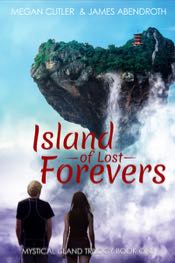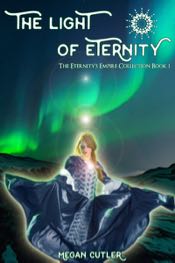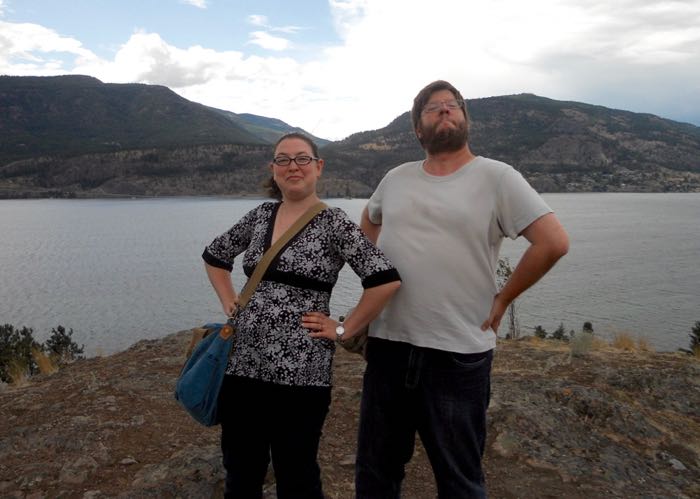The term “sedentary lifestyle” has become a buzzword in our house of late.
My husband has real concerns about the fact that I spend all day typing at my computer. I get so locked into my projects, so focused on what I’m doing, I forget about everything else.
When my husband is away on business trips, I forget to eat and sleep, waiting until I just finish this one little thing before I take care of myself.
Pain Reminds You It’s Important to Stop and Take Care of Yourself
It’s only in the past year that I’ve realized how important it is to take care of myself.
About two months ago, I noticed a strange tingling numbness in the last two fingers on my left hand. Turns out it’s cubital tunnel syndrome (a cousin to the more famous carpal tunnel). This means I’ve managed to pinch a nerve somewhere in my left arm—probably by holding my hands in the same position all day to type.
That, combined with constantly leaning on my left arm has caused damage somewhere inside my elbow. You never realize how much you do something until doing it starts to hurt!
It was during one of my husband’s aforementioned business trips that I realized I had let things go too far. It was 2:30 in the morning and I was in just finish this last little thing mode, determined not to let myself fall behind schedule. Then it hit me; if I cut myself short on sleep, I was going to be too tired to handle tomorrow’s workload.
And on top of that, I had been struggling with my schedule for four months, promising myself I was going to go back to regular yoga practices, but never managing to find the time.
Creativity Demands a Surprising Amount of Energy
Creativity demands a surprising amount of energy, which makes it terribly difficult when we’re not feeling well.
And since being a writer means being your own boss, there’s no one to tell you when to take a break or how much work you should reasonably expect to complete in a day. I think we all have a tendency to drive ourselves, believing we should be capable of twice as much as we actually are.
The biggest challenge since that revelation has been forgiving myself for walking away from the computer.
I’ve gone back to my old yoga routines (and boy did they hurt the first few times). I’ve been more careful about how I position my arms, tried not to lean on them so much, and made my workspace as ergonomic as possible.
Lifestyle changes are never easy, but those little aches in my muscles lately remind me that I’m doing something for me, something important, and that feels almost as good as finishing a new chapter in my novel!
Productivity is Limited to The Amount of Energy We Have
Sometimes, I find myself wondering how much work I could get done if I didn’t have to sleep.
When I worked a regular nine to five job, I showed up, did what I was told and went home at the end of the day (ironically, hoping I would have enough energy left to devote to writing).
But writing full time is different. In many ways, you have to treat it like a business. You need time to answer emails, interact on social media, market your books and still find time to be creative.
As my workload has grown, so have my expectations. If I’m used to performing five tasks a day, how hard can it be to squeeze in a sixth? Or to produce a short story for publication every month? But productivity is limited by the amount of hours in a day coupled with the amount of energy we have to expend on creative tasks.
I’m Trying to Honor My Own Limits
I constantly struggle to balance the workload. Sometimes I prioritize marketing, sometimes writing, but I never feel satisfied with the amount of work I managed to finish. There’s always more to do.
I’ve had to accept that there is no catching up. There is no staying on schedule. There are just tasks that need tended and the amount I can manage in one day.
By shuffling my routine, I’ve learned that I like to see a lot of progress on one project instead of a little bit of progress on several. I’ve learned that today’s priorities might not be the same as tomorrow’s, that the tasks I put off might not be as important as I first believed, and that it’s easy to prioritize the wrong things when you have a list of daily expectations.
For a long time, I thought the answer was just to find the right routine. But I’m starting to realize the issue isn’t time; it’s my expectations. I set unreasonable goals, then berate myself for failing to achieve them.
No one can spend every moment of every day working. I’m trying to adopt the mantra “work smarter rather than harder.” And most of all, I’m trying to honor my own limits.

I Realized My Decisions Could Shape My Writing Journey
When I first started writing full time, I was desperate to make a sale. The more I read about traditional publishing, the more impossible it seemed.
At the time (some eight years ago now), there still seemed to be a stigma against self-publishing. I was terrified of being a failure and desperate to earn money somehow. I had convinced myself that I needed to make money to be a real writer.
I started writing short stories and submitting them to magazines. I felt like I needed validation to prove that I could make it, that a single sale would indicate I had the talent needed to succeed.
It was foolish; I don’t even like writing short stories! Yet I regarded every rejection as a sign that I was doomed to fail.
In this sea of turmoil, I sat down to read a book. That book was The Alchemist by Paulo Coelho. Sometimes books come into our lives at the perfect moment, and this book found me exactly when I needed it.
The Alchemist is a story about a young boy trying to fulfill his life’s dream. He meets a wise man who tells him when someone pursues their dreams, the universe conspires to help them. But it also tests them. Many people, this wise man says, give up at the first set of hurdles. They abandon their dreams for something that feels easier and safer.
This resonated with me. I had given up my agency. I had put power over my passions into the hands of unknown, unseen strangers. I had allowed fear of failure to bar the way. So I made a decision to take control.
I could choose the method by which I shared my work. My decisions could shape my journey. And I have never allowed myself to forget that.
I’ve Tried Not Writing—It Doesn’t Work for Me
Sometimes, I tell my husband that I should probably consider getting a real job again. I used to work in IT; I loved working with computers, but hated working with their users. There are a lot of things I don’t miss about my old job, but financial stability, and fewer responsibilities, are two things I’d like to get back.
But then on the darkest days, when the demons of doubt are loudest, my characters whisper quiet secrets in my ears. Sometimes it’s a missing bit of plot to enhance a story that’s had holes for a long time. Sometimes those whispers revive an old project, or start a brand new one. Always, they draw me up out of the depths, revive my passion and get me back into the mindset of creativity.
I don’t know where stories come from, but once they get into your head they can be persistent little creatures, demanding that you pay attention to them until they’re satisfied.
When people ask me if I would still write if I never managed to be successful, my answer is always yes. I have tried not writing; it doesn’t work for me. It’s like trying to hold my breath forever. Eventually, my brain forces me back to the page.
Advice for a Young Writer: Take Baby Steps
Baby steps. Writing a book is a mountain. And getting it published can feel like an entire mountain range.
If you look at everything you have to do from the outset, you’re going to end up breathing into a paper bag (at least, that’s what happened to me). It’s easy to get overwhelmed, even if you’re eager and excited for the challenge. There are so many things to master to write a good story (plot, pacing, voice, etc.) and finishing the book is only the first step.
If you self-publish you need to learn how to format the book. Then you need to figure out how to market the book (a process which can take far longer than writing it). If you’re hoping to traditionally publish, you need to master the art of query writing and navigate the field of agents in your genre. Either way, you need to be prepared for rejection, frustration and heaps of self-doubt.
Take a step back, take a deep breath and prioritize. Start with step one, and don’t worry about step two until you get there. It’s a lot easier to write a book if you aren’t worrying about how you’re going to market it or who is going to read it. Please yourself first—worry about pleasing others later.
Try not to look too far ahead, though do keep your goals in mind. Celebrate the little successes—each finished draft is a triumph of its own.
* * *
Megan Cutler grew up in a small town in central Pennsylvania where books offered an easy escape from the mundane life of a rural highway town. In 2003 she married the love of her life and moved to Canada. Megan started writing full-time in 2011 and has since published five novels and several short stories, including the Mystical Island Trilogy. Her characters keep her up late and wake her up early, but she loves them anyway.
For more information on Megan and her work, please see her website and Amazon author page, or connect with her on Facebook and Twitter.
 Island of Lost Forevers: Is the island paradise or does a nightmare lurk beneath the surface?
Island of Lost Forevers: Is the island paradise or does a nightmare lurk beneath the surface?
When a mysterious island appears off the coast of San Francisco, two intrepid academics risk everything to discover its secrets. Catilen Taylor has struggled all her life with the ability to sense others’ emotions. Damian Cooke studies an ancient art he calls ‘magic.’
The island boasts an idyllic retreat, ruled by the enigmatic Sentomoru, who invites them to share the wonders of his bathhouse. But as the travelers strive to unravel the island’s secrets, Catilen senses danger stalking their steps.
Neither Catilen nor Damian know how long the island will remain on Earth. If they can’t solve its riddles quickly, they may be trapped wherever it goes when it vanishes.
Available on Amazon.
 The Light of Eternity: The moment she laid her hands on the crystal, Erica’s life fell apart.
The Light of Eternity: The moment she laid her hands on the crystal, Erica’s life fell apart.
The special archaeological dig in Antarctica was supposed to be a path to redemption for Erica Brown, a chance to escape university conduct probation and looming threats of expulsion. But a chance to explore the dig’s prized temple ends in disaster when Erica damages the site’s most valuable artifact.
Now she and her friends are haunted by strange visions and stuck in the center of a bizarre series of events. While her friends appear to have acquired magical powers, Erica isn’t so lucky. Her next misstep could be a death sentence and she’s powerless to help her friends. United by their plight, the girls struggle to make sense of the situation while preventing further catastrophe.
Can Erica discover her hidden strength in time to solve the mystery?
Available at Amazon and Barnes & Noble.

